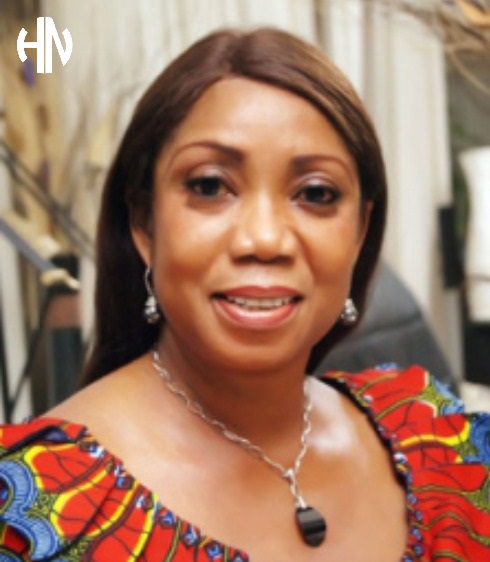A Continental Milestone in Gender Inclusion and Governance
By Princess Gloria Adebajo-Fraser MFR.
The National Patriots.
In a defining moment for Africa and the world, Namibia has achieved what many nations still struggle to imagine — a fully gender-balanced leadership. The southern African nation has become the first country in Africa to simultaneously have a female President, Vice President, Senate President, and ruling party Secretary-General, with 57% of all political appointees now women.
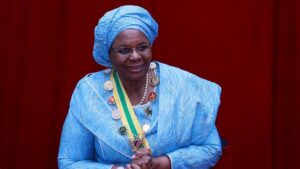
Globally, Namibia now stands as the 8th country in history to have a woman at the helm of state, joining the ranks of Iceland, Finland, New Zealand, and Bangladesh in reshaping global narratives on gender inclusion and political leadership.
A Landmark for Africa and the World
This transformation did not happen overnight. Namibia’s constitution, forged in the early 1990s after independence from apartheid-era South Africa, placed gender equality at its core. With strong support from civil society, and deliberate policies within the ruling SWAPO Party, Namibia systematically embedded women into positions of influence — not as tokens, but as leaders of competence and character.
Today, Namibia ranks among the top 10 nations globally for gender representation in governance, a position earned through policy-driven inclusion, quota systems, and cultural evolution that have normalized female authority rather than questioned it.
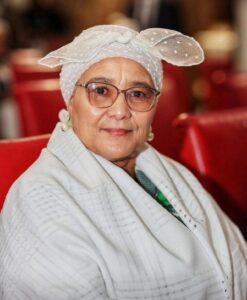
Comparative Analysis: Namibia vs Nigeria
Metric Namibia Nigeria
Female President , Yes (2025) Nigeria -None
Female Vice President, Yes – Nigeria None.
Female Senate President Yes. Nigeria- None.
Women in Cabinet 57% ~15%
Female Governors Several senior women in cabinet; parity in local councils- 0 out of 36
Women in Parliament 48% 3.6% (House of Reps), 7.3% (Senate)
In Nigeria — Africa’s largest democracy — the numbers are starkly different. Despite women comprising nearly 49% of the population, representation in governance remains painfully low.
Out of 469 federal legislators, fewer than 30 are women. Nigeria has never had a female Governor, and only a handful of female ministers hold portfolios often labeled “soft” — such as women affairs, education, or tourism — while strategic ministries like defense, finance, and petroleum remain male-dominated.
This gender imbalance is not just symbolic; it has real consequences. Countries that integrate women in leadership record stronger social protection systems, higher GDP growth rates, and better governance outcomes, according to UNDP and World Bank data.
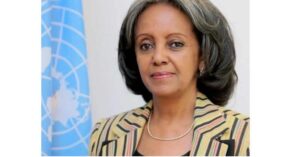
What Nigeria Is Missing
1. Economic Resilience:
Studies show that countries with greater female participation in decision-making allocate more resources to healthcare, education, and social safety nets — sectors that directly buffer economic hardship.
2. Accountability & Transparency:
The IMF has repeatedly linked female leadership to lower corruption levels and stronger institutional credibility. Rwanda’s post-genocide recovery, for instance, is credited in large part to the 61% female representation in its parliament — the highest in the world.
3. Innovation & Governance Diversity:
Female leaders often emphasize collaboration and inclusivity, essential traits for national cohesion. With Nigeria currently facing economic strain and social fragmentation, integrating women into core governance could inject empathy, discipline, and strategic foresight into policymaking.
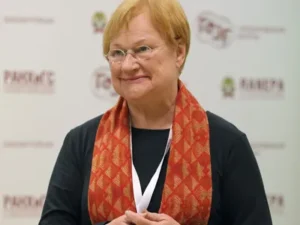
How Legislation Can Bridge the Gap
Nigeria’s political system continues to be heavily monetized, effectively excluding capable women who lack the financial resources to compete in male-dominated party primaries. Legislative reform could change this equation through:
Mandatory gender quotas — reserving at least 35% of elective and appointive offices for women, similar to the “Zebra System” used in Namibia and Rwanda.
Public campaign financing to reduce the influence of money in politics.
Enforcement mechanisms within INEC and political parties to ensure compliance, with penalties for violations.
These structural interventions would allow merit to flourish over muscle and money.
The Cultural Hurdle: Africa’s Traditional Power Dynamics
Across much of Africa, including Nigeria, patriarchal structures and cultural norms continue to hinder women’s political ambitions. From inheritance laws to traditional gatekeeping in party systems, women face systemic exclusion masked as “respect for tradition.”

However, culture is not static — it evolves. Countries like Namibia, Rwanda, and Ethiopia have demonstrated that legislative will and civic education can realign cultural attitudes without erasing heritage. In Namibia, for instance, traditional authorities were re-educated on gender equality principles, turning potential cultural opposition into partnership.
For Nigeria, similar transformation can come through education, religious sensitization, and civic advocacy — involving both men and women in changing how leadership is perceived.
Nations Leading the Way in Female Inclusion
Country % Women in Parliament Key Female Leaders
Rwanda 61% President of Senate, Speaker of Parliament
Finland 47% Prime Minister Sanna Marin (2020–2023)
Namibia 48% President, VP, Senate President, Party Sec-Gen
Sweden 46% Gender-balanced Cabinet for two decades
Ethiopia 41% President Sahle-Work Zewde
New Zealand 45% Former PM Jacinda Ardern
These nations demonstrate a consistent truth: when women lead, societies stabilize. Nations that once struggled with conflict or inequality are now global case studies in progress, empathy-driven governance, and citizen well-being.

What Nigeria Stands to Gain
If Nigeria truly embraces women’s inclusion, the benefits would be immense:
Improved policy diversity — fresh solutions to social and economic challenges.
Reduced corruption — data shows female leadership correlates with stronger ethics.
Enhanced education and health outcomes — areas historically prioritized by women leaders.
Better conflict resolution — empathy-driven mediation, vital in Nigeria’s fractured regions.
Nigeria’s resilience has never been in question — but its refusal to fully utilize half its human capital remains a national tragedy.
The Path Forward: From Symbolism to Substance
Namibia’s rise is not just an African victory — it’s a global wake-up call.
It proves that female leadership is not a luxury or tokenism, but a national necessity for progress, balance, and long-term stability.
Nigeria’s path to such transformation demands deliberate courage:
Reform the electoral framework.
De-emphasize financial might in politics.
Reorient cultural mindsets through education and advocacy.
Create mentorship pipelines linking experienced women leaders to young aspirants.

Conclusion
Namibia’s achievement is not merely historical — it is revolutionary.
It has shown that Africa can lead the world in redefining gender equity, that power can wear grace, and that leadership need not shout to be strong.
As nations watch Namibia chart a new era of balance and progress, Nigeria and others must ask themselves a crucial question:
“How long will we continue to fight national battles with only half our army?”
Empowered women are not competitors in governance — they are the missing partners in building a just, prosperous, and sustainable future.
Princess Gloria Adebajo-Fraser MFR.
The National Patriots.


